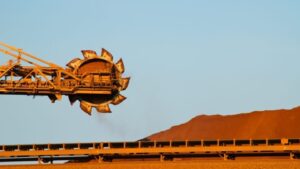The controversial Narrabri Gas Project has received planning approval from the NSW Independent Planning Commission, paving the way for developer Santos to commence construction of the project, despite significant community concerns around the environmental impacts of the project.
The Commission issued its approval on Wednesday to the massive Narrabri gas project, saying that it was ‘satisfied’ that project would be able to manage the concerns raised by the project opponents, which included fears the project would be damaging to local ecosystems, contribute to global greenhouse gas emissions and would fail to deliver upon promised reductions to energy prices.
In granting approval to the project, the NSW Independent Planning Commission pointed to the expected economic benefits of the Narrabri gas project as part of its reasons for deciding to grant planning approval to the project.
“The Commission finds that the project has the potential to improve gas security for Australia’s east coast gas market,” the Commission said. “It will also deliver economic and social benefits to the people of NSW, including through a diversification of industry for Narrabri and the surrounding region, immediate and ongoing employment opportunities and significant direct funding for local infrastructure and community projects.”
“Following its detailed deliberations, the Commission concludes the project is in the public interest and that any negative impacts can be effective mitigated with strict conditions.”
The planning commission said that on balance, the project would be in the public interest, as it would establish a significant new supply of gas within New South Wales, while stating that it believed the environmental concerns raised by project opponents were manageable.
The commission issued a ‘phased’ approval for the project, requiring Santos to deliver on certain conditions before progressing to the construction and operation of the project. The conditions largely require Santos to prepare and publish modelling of the project and management plans for groundwater, biodiversity, and other environmental impacts.
The controversial project attracted a record level of responses from the community with the Commission receiving more than 11,200 submissions to its enquiry, which included 10,720 objections to the Narrabri gas development. A majority of the submissions from those local to the Narrabri region also objected to the development.
As an indication of the public interest in the contentious project, the website of the NSW Independent Planning Commission went offline on Wednesday morning, shortly after the approval of the Narrabri project was announced.
Santos expects to spend $3.5 billion developing the project, creating 1,300 jobs during the construction phase with 200 ongoing jobs during operations. Through the Narrabri gas project, project developer Santos is set to develop as many as 850 gas wells over the next 25 years, spread out across an area covering 95,000 hectares in northern central New South Wales.
The project is seeking to tap into up to 1,500PJ of gas reserves in the Narrabri region, with an expected daily production of up to 200TJ, which represents around half of New South Wales’ current level of gas consumption.
Over the life of the project, the Narrabri gas fields are expected to contribute almost 130 million tonnes to Australia’s greenhouse gas emissions.
The commission received an unprecedented number of submissions about the project, with a large number of local community members and organisations raising concerns about the environmental impact of the project, as well as questioning whether the project would deliver lower gas prices for consumers.
Several pieces of analysis, including those published by IEEFA and Pegasus Economics, suggest that the cost of production at the Narrabri project would exceed current targets for lower gas prices, and could fail to deliver cheaper gas to NSW consumers. The IEEFA analysis suggests that the cost to produce gas from the Narrabri project could be more than twice government targets to get gas spot prices below $4 per gigajoule.
Environmental issues raised included concerns around impacts on groundwater and agriculture, the potential loss of biodiversity, impacts on local Aboriginal cultural heritage as well as the significant contribution the project is set to make to increasing Australia’s greenhouse gas emissions.
Environmental legal centre the Environmental Defenders Office said that it was disappointed to see the project granted planning approval, saying that the conditions imposed on the project were inadequate.
“Our legal submissions and the independent scientific evidence to the IPC demonstrated that this project is not necessary – either to drive down gas prices or secure domestic supply,” EDO CEO David Morris said.
“Allowing the Narrabri project to go ahead puts the groundwater, ecosystems and local communities around the Pilliga at risk. It adds another source of powerful greenhouse gas emissions to our atmosphere at a time when what is urgently needed is rapid and deep reductions in emissions.”
Environmental group Greenpeace Australia said that the Narrabri project would lead to ‘unacceptable’ environmental impacts, and called on federal environment minister Sussan Ley to step in and block the development of the project.
“Extracting and burning methane has already made a massive contribution to the climate crisis and turning Narrabri into a gas field would only exacerbate extreme weather events like bushfires,” Greenpeace Australia campaigner Jonathan Moylan said.
“Sussan Ley must head off the inevitable community conflict and use her powers to reject this project following the highly uncertain approval by New South Wales.”
Shareholder advocacy group the Australasian Centre for Corporate Responsibility (ACCR) said that it was calling on Santos investors to pressure the company to halt plans to develop the Narrabri gas fields.
“Climate-aware investors now have a role to play in ensuring shareholders’ money is not spent on activities that go against the interests of local communities and a safe climate,” ACCR’s director of climate and environment Dan Gocher said.
“Given the strong signal investors gave Santos in April this year, when 43% of its shareholders supported calls for Paris-aligned emissions targets, the onus now falls on to climate-aware investors to amplify the pressure on Santos to halt these plans.”










